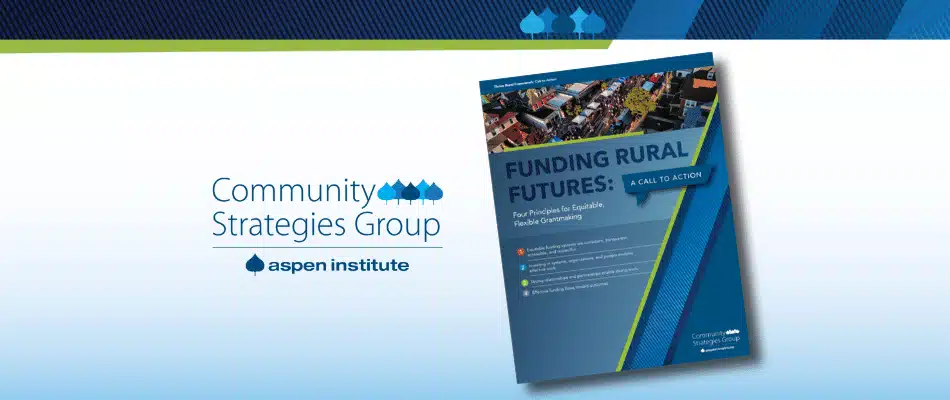View this Publication
Click the button above for the executive Summary document for Funding Rural Futures: Call to Action. You’ll find quick takeaways and recommendations for action.
Securing adequate and appropriate funding is a perennial challenge for nonprofit organizations of all types, but for organizations working in rural communities and Native nations affected by persistent poverty, these challenges are magnified. Foundation giving is disproportionately low in rural communities and Native nations, federal and philanthropic grants and loans come with onerous restrictions, and disinvested communities lack the resources and capacity required to compete for funds.
Given these challenges, the Partners for Rural Transformation (PRT), a coalition of organizations working in rural persistent poverty areas, asked the Aspen Institute Community Strategies Group (Aspen CSG) to conduct an Action-Learning Exchange (ALE) to better understand what it will take to make more flexible and responsive funding available to organizations serving low-income and persistent poverty rural regions. ALE participants recommended that funders adopt a trust-based approach centered on flexible, long-term funding, including multi-year general operating support.
Participants also recommended that funders invest in strengthening systems, organizations, and people working on the ground, as well as planning, relationship development, and partnership building. For federal and other public funders, participants recommended streamlining systems to reduce the burden on grantees, moving toward more equitable funding models like targeted block grants, and aligning funding systems with community priorities and outcomes.








